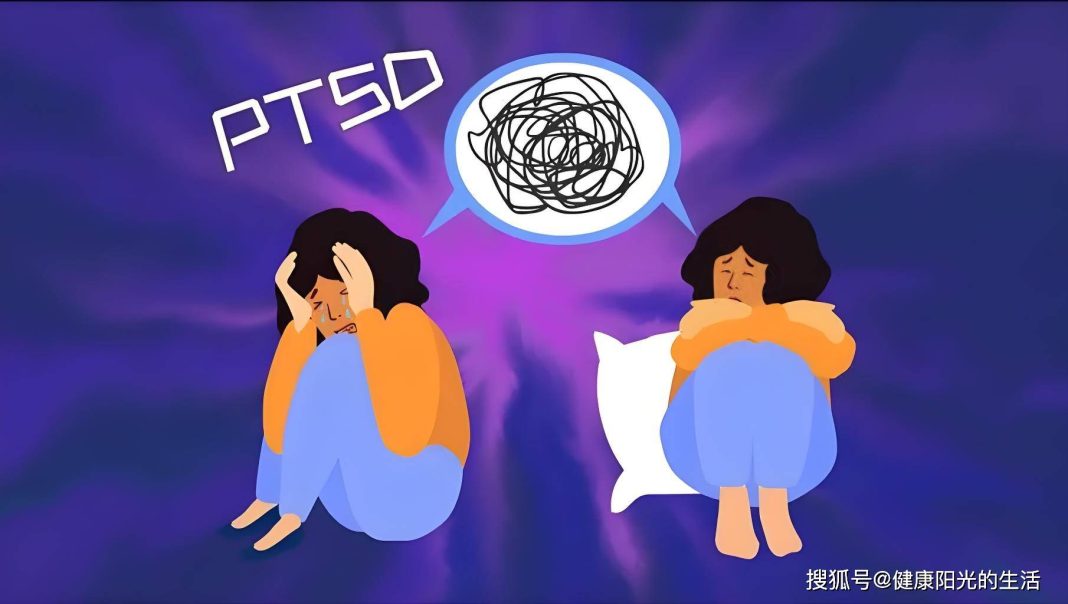Post-Traumatic Stress Disorder (PTSD) is a mental health problem that occurs after experiencing or witnessing extremely traumatic events. These traumatic events usually trigger intense fear, helplessness, or extreme psychological stress. The formation of PTSD is complex and involves multiple factors, including biological, psychological, and social environmental factors. Here are some major causes and influencing factors.
- Type of Traumatic Events:
- PTSD is typically triggered by the following types of traumatic events:
- Violence: Events such as war, sexual assault, physical assault, robbery, and other violent incidents are common causes of PTSD. These events often involve threats to life or serious physical harm.
- Disastrous Events: Natural disasters (such as earthquakes, floods, hurricanes), serious accidents (like car accidents, fires), terrorist attacks, and other disastrous events can also lead to PTSD. These events often result in significant destruction and casualties, plunging survivors into extreme fear and helplessness.
- Occupational Exposure: Some professionals such as military personnel, police officers, firefighters, paramedics, etc., may develop PTSD due to frequent exposure to traumatic events (e.g., wartime experiences, rescue missions).
- Personal Trauma: Personal traumatic events like witnessing a loved one’s death, serious illness, major surgery, sudden family changes (e.g., divorce, domestic violence), can also result in PTSD.
- Biological Factors:
- Brain Structure and Function: Studies indicate that individuals with PTSD often exhibit differences in brain structure and function compared to the general population. For example, the amygdala (a brain region associated with fear response) is often more active in PTSD patients, while the prefrontal cortex (responsible for regulating emotions and rational thinking) may show reduced activity.
- Neurotransmitters: PTSD is related to an imbalance of neurotransmitters in the brain. Particularly, hormones associated with stress response, such as cortisol, may be abnormally secreted in individuals with PTSD. Additionally, neurotransmitters like serotonin and norepinephrine may also be dysregulated in PTSD patients, affecting emotional regulation and stress response.
- Genetic Factors: Although traumatic events are the direct triggers for PTSD, an individual’s susceptibility to traumatic events may be partially determined by genetic factors. Some studies suggest that PTSD has a certain genetic tendency within families, indicating that genetic factors may influence an individual’s response to traumatic events.
- Psychological and Social Factors:
- Individual Vulnerability: Some individuals may be inherently more prone to the impact of traumatic events, displaying higher psychological vulnerability. These individuals may have experienced abuse, neglect, or other forms of psychological trauma in early years, making them more sensitive to subsequent traumatic events.
- Coping Mechanisms: An individual’s coping mechanisms also influence the development of PTSD. If a person lacks effective coping mechanisms or overly relies on negative coping strategies (such as avoidance, denial, emotional suppression), they may be more prone to developing PTSD.
- Social Support: Strong social support networks, such as family, friends, colleagues, can help individuals cope with the psychological impact of traumatic events. Conversely, a lack of social support or living in an unstable social environment may increase the risk of PTSD.
- Multiple Traumas: Experiencing consecutive or multiple traumatic events (e.g., childhood abuse followed by adult violence) significantly increases the risk of developing PTSD. This cumulative effect may make individuals more vulnerable and make it harder for them to cope with new traumas.
- Post-Trauma Responses:
- Stress Response: Almost everyone experiences stress responses like fear, anxiety, insomnia, nightmares, etc., after a traumatic event. These reactions are normal, but for some individuals, these stress responses may persist for more than a month, intensify, and eventually develop into PTSD.
- Re-Experiencing Trauma: PTSD patients often involuntarily re-experience traumatic events through flashbacks, nightmares, or intrusive memories. This re-experiencing is often accompanied by intense emotional distress, making it difficult for patients to break free from the trauma.
- Avoidance Behaviors: To avoid triggering traumatic memories, PTSD patients often engage in avoidance behaviors, steering clear of people, places, or situations related to the trauma. While this avoidance behavior temporarily reduces distress, it also restricts the patients’ normal life and social functioning.
- Formation of Post-Traumatic Stress Disorder:
- The formation of PTSD is multifaceted, involving the nature of traumatic events, biological factors, psychological and social factors, and post-trauma responses. Understanding these factors helps us better comprehend and address PTSD.
- If you or your loved ones are experiencing symptoms of post-traumatic stress disorder, seeking professional help is crucial. Guangzhou Huaxing Rehabilitation Hospital has a specialized mental health team that provides comprehensive assessment and treatment services to help patients overcome the shadow of trauma and rebuild a balanced and peaceful life.


